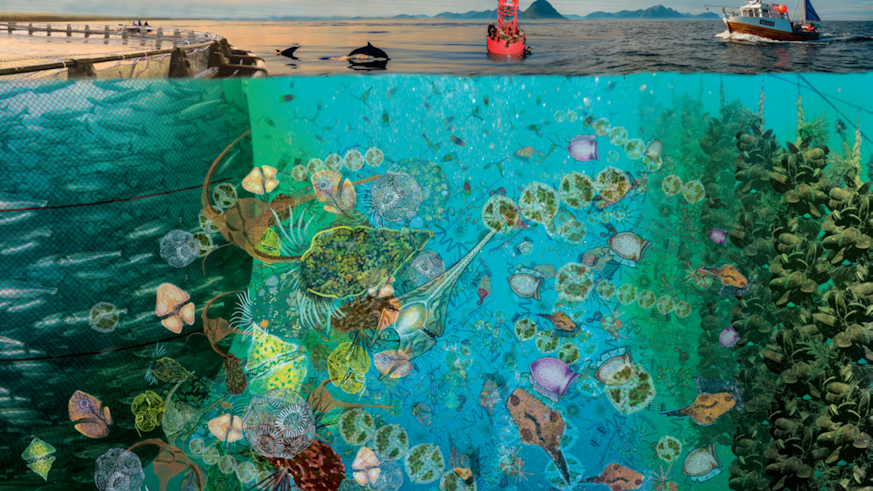New working group to radically reshape marine science
21 December 2021

A researcher from the School of Earth and Environmental Sciences is assembling a new Scientific Committee on Oceanic Research Working Group to identify ways to integrate the new mixoplankton paradigm.
Dr Aditee Mitra, Research Fellow at the School of Earth and Environmental Sciences, together with George McManus, Professor of Marine Sciences at the University of Connecticut, will Chair a new Scientific Committee on Oceanic Research (SCOR) working group Mixotrophy in the Oceans – Novel Experimental designs and Tools for a new trophic paradigm, known as MixONET.
The working group includes a pan-global multidisciplinary team of experts in plankton ecophysiology and molecular biology, field sampling and monitoring technology, biological and physical oceanography.
The last 10 years have seen a paradigm shift in our understanding of the oceanic food web. The dichotomy between “plant-like phytoplankton” and “animal-like protozooplankton” is now recognised as a simplification. Recent findings suggest many protist plankton combine photosynthesis (primary production) and feeding (secondary production) in one cell. These organisms are termed the mixoplankton. Through neglecting to recognise the commonality of mixoplanktonic activity, marine science has only been studying half of the physiology and ecology of a major life form, and water quality management and fisheries policies are similarly conflicted.
The primary aim of MixONET is to identify ways to integrate the new paradigm in marine ecology within existing research methods. This new mixoplankton-centric paradigm overthrows over 100 years of understanding of biological oceanography and has the potential to radically reshape marine ecology.
While recent conceptual and quantitative models have been adapted to accommodate the new paradigm, sampling and monitoring methods have not. This has created a significant knowledge gap about the foundation of the ocean food web. The group will advocate for the realignment of existing plankton-facing records considering the mixoplankton paradigm, as well as identifying connections between mixoplankton communities and essential ocean variables. They will also re-evaluate existing standard biological oceanographic research methods and practices for application under the mixoplankton paradigm.
The importance of the mixoplankton paradigm in biological oceanography needs to be brought to the attention of students through to policymakers. Thus, the group will develop multilingual training material, highlighting the importance of the mixoplankton paradigm in biological oceanography, for Early Career Researchers, ecosystem managers, teachers and students, to enhance ocean literacy.
To understand how plankton ecology will react to climate change we need to understand how mixoplankton will respond. The work of MixONET will therefore make a solid contribution to addressing this question and helping to meet the priorities of the United Nations Ocean Decade.
SCOR is an international non-governmental non-profit organisation formed by the International Science Council to help address interdisciplinary science questions related to the ocean.
Follow the progress of the group on the Mixotroph.org website, Facebook page, or Twitter.
